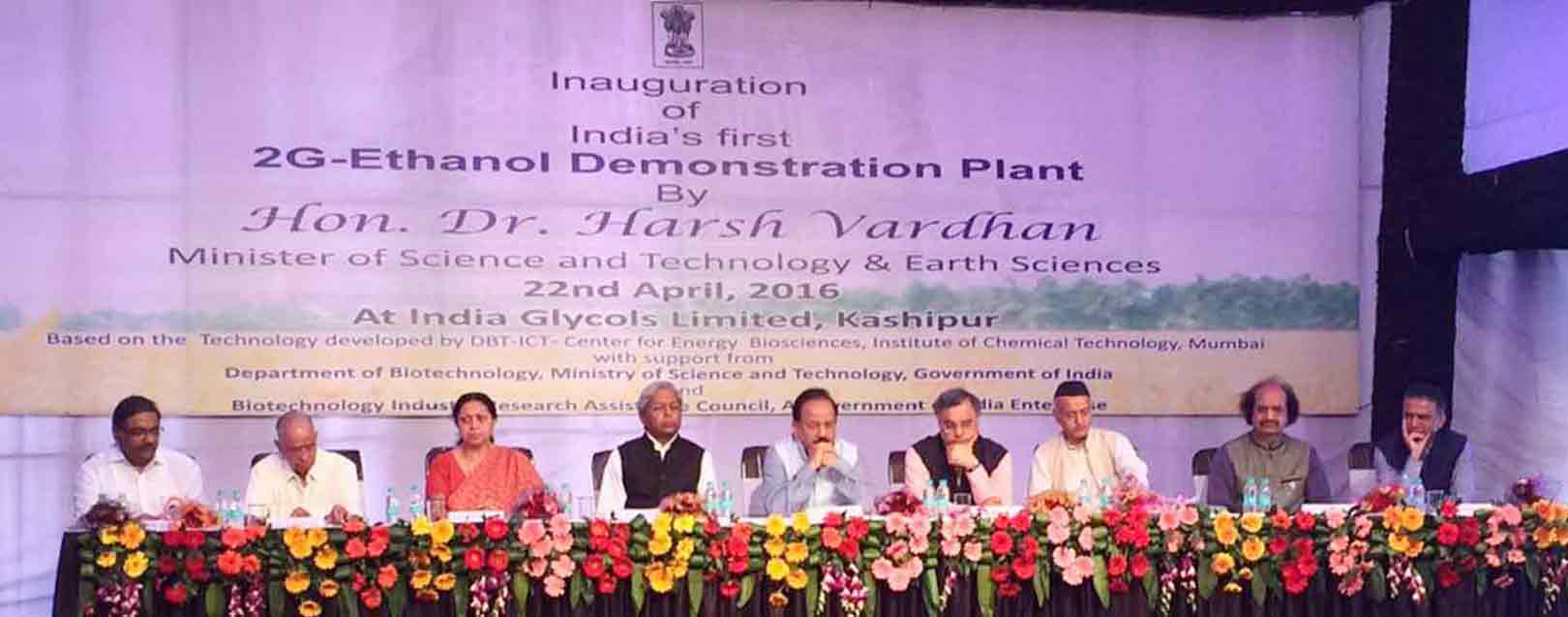
India’s first 2G Ethanol plant in Uttarakhand
PTI
Union Minister Harsh Vardhan on Friday inaugurated the country's first second-Generation (2G) Ethanol plant at Kashipur in north Indian state of Uttarakhand.
"The technology is suited for both Indian and global needs and it is projected to be capable of converting all types of agricultural residues like bagasse, rice and wheat straw, bamboo, cotton stalk, corn stover, wood chips to ethanol in less than 24 hours, with optimum product yields," the Union Minister for Science Technology and Earth Sciences said.
"If successfully operated and scaled-up, it will establish India as a major global technology provider in the arena of renewables and reduction in carbon-emissions, besides effecting considerable savings in import of crude-oil," a statement from the ministry quoting Vardhan said.
He said that more such examples are needed, for the initiatives like 'Make in India' and 'Swachh Bharat Abhiyan' to be truly successful.
"Such technological breakthroughs can make India stand out as a leader in the world's struggle to save the earth from challenges of global warming," he noted.
The plant, which has a capacity to consume 10 tonne of biomass per day, is based on the globally-competitive indigenous technology of converting lingo-cellulosic biomass to Ethanol.
It is a Feedstock-independent technology developed by DBT-ICT Centre for Energy Biosciences at the Institute of Chemical Technology (ICT) Mumbai, supported by Department of Biotechnology, Ministry of Science and Technology and the Biotechnology Industry Research Assistance Council (BIRAC).
The Government has set a mandate of 5 per cent blending of renewable biofuel in both petrol and diesel. While diesel biofuel blending is near zero, the petrol blending on Friday stands at an overall of about 3 per cent in the form of first generation (1G) or molasses-based Ethanol.
While the annual requirement of 1G-ethanol stands at about 500 crore litre, the current total installed capacity is about just 265 crore litre.
"In such a scenario, the targets of 10 per cent blending by 2017 and 20 per cent by 2020 look remote unless agricultural waste based ethanol 2G-Ehanol production technologies are successfully demonstrated," the statement said.





